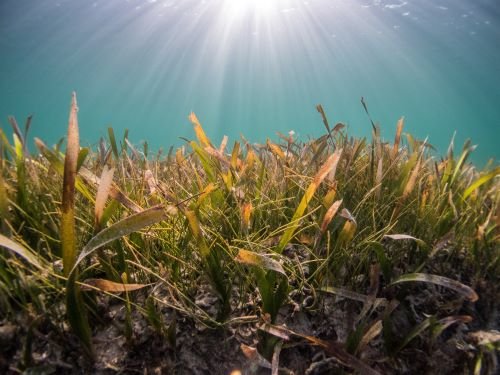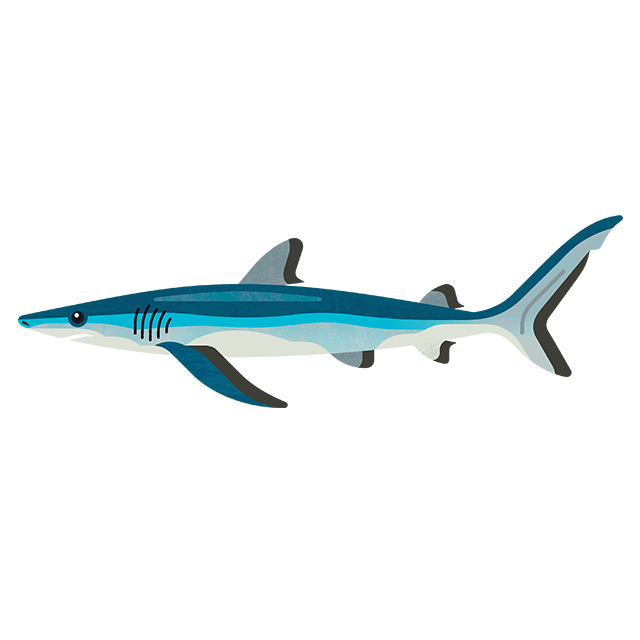
Positive ocean news: January '25 edition
Find out what good news this month has brought for our seas with our latest round-up of positive ocean stories.
MPs approve Deposit Return Scheme in England and Northern Ireland
Regulations for Deposit Return Schemes (DRS) in England and Northern Ireland were passed in the House of Commons, marking the next step towards schemes across the UK launching in October 2027.
Deposit Return Schemes involve paying a small deposit when you buy a drink, which you then receive back when you recycle the container at return points. This incentivises people to recycle their drinks containers, such as plastic bottles and metal drinks cans, as well as those they find littered in the environment. This will help reduce the amount of litter found on in the marine environment, with drinks-related litter found on 97% of UK beaches last year.
The House of Commons voted 352 to 75, majority 277, in favour of a Deposit Return Scheme for single-use plastic, steel and aluminium drinks containers. This is set to launch in October 2027, aligning with similar schemes in Wales and Scotland.
Sandy Luk, Chief Executive at the Marine Conservation Society said, "This marks a fantastic win for our seas … Deposit return schemes will not only boost recycling and move us towards a circular economy where nothing is thrown away but also significantly reduce this kind of beach pollution.”
Read more here
Europe’s first Ocean Literacy Strategy launches

A child sat at a table reading a marine wildlife identification guide
Credit: Ffion Mitchell
The first Ocean Literacy Strategy in both the UK and Europe launched earlier this month in Wales. Led by the Coasts and Seas Partnership (CaSP Cymru), Y Môr a Ni aims to foster people’s relationship with the coasts and seas so they feel empowered and motivated to protect them.
Meaning ‘the sea and us’, Y Môr a Ni will support individuals, businesses, and communities across Wales in furthering their understanding of people’s influence on the ocean and its influence on us.
Ffion Mitchell-Langford, Hiraeth Yn Y Môr Project Legacy Lead at the Marine Conservation Society, which is a member of CaSP Cymru, said, “We’re overjoyed to see the launch of the UK's first Ocean Literacy Strategy … We believe it will play a key role in helping pave the way towards becoming a nation that is connected to our seas and working towards a cleaner, healthier, better-protected ocean.”
Read more here
River brimming with wildlife following reconnection project
The transformation of the 0.7 mile stretch of the River Aller was carried out through the National Trust's Riverlands project, which aims to create river areas that are clean, healthy and rich in wildlife. As a result of the work at the Holnicote Estate, seven hectares of waterscapes and wetlands have been created, providing homes and feeding grounds for a diverse range of wildlife and providing a carbon store.
The development has resulted in a 1780% increase in the amount of aquatic habitat, providing more space and increased opportunities for food and refuge for wildlife. Jack Siviter, National Trust ranger at Holnicote, said, “The site has gone bananas in terms of the amount of wildlife and lush vegetation growth that we’ve seen. Thanks to the increased wetted area we’ve seen loads of water loving creatures like wild waterfowl, water voles, eels, lamprey, grass snake, [and] trout”.
Read more on the National Trust website
Humpback whales spotted across the UK

Two humpback whales swimming in open ocean
Credit: Hannes Klostermann/ OceanImageBank
Several humpback whales have been spotted around the UK this month, with the once-endangered species seen along the Sussex coastline, Cornwall, and off Dean in Kent.
Wildlife watchers captured videos of the humpbacks breaching, leaping belly-up into the air before returning with a thundering splash as it returns to the water. This breath-taking behaviour is thought to be a way of communicating to other whales over large distances. Another sighting shows a whale slapping its front pectoral fin at the water’s surface – another form of communication.
The increase in sightings may be due to a boost in population numbers, following bans on commercial whaling. As a result, humpback whales have expanded their range, allowing them to explore new areas for breeding and feeding.
Another theory is that warming waters caused by climate change are forcing humpback whales to travel further for food.
Read more on the DailyMail website
Seawilding garden brings the ocean to the Chelsea Garden Show
Garden designer Ryan McMahon hopes the garden, which features a saltwater pool and a seagrass sculpture made of scrap metal, will highlight efforts to restore key marine species such as seagrass and native oysters to the area’s waters.
Seagrass plays a vital role in the ocean, providing nursery grounds for a range of fish species, absorbing and storing carbon, and protecting the UK’s shores against coastal erosion. "The more I discover about seagrass, the more fascinated I become by the incredible role it plays in our marine ecosystems," says Ryan.
Read more on the Country Living website
Invasive water hyacinth being turned into biodegradable plastic alternatives

A water hyacinth
Credit: Ries Bosch
Water hyacinths, the world’s most widespread invasive species, is blanketing Lake Naivasha, Kenya, choking its fish, cutting off sunlight, outcompeting other plant species and depriving the water of oxygen.
A Kenyan company is turning an invasive water plant species into sustainable alternatives to single-use plastic items such as wrappers, straws, tumblers, and party plates.
The bioplastic, made by HyaPak Ecotech Limited, biodegrades over a few months and offers a solution to the problem of water hyacinths and the country’s plastic pollution. The company is now buying water hyacinths from Lake Naivasha, which have been harvested and dried by local fishermen, offering them a way to supplement the loss of income caused by the plant.
Read more on the CNN World website
Study offers valuable guidance for coral restoration efforts
The findings provide important guidance for conservationists, with the the study also finding that higher temperatures and levels of levels of nitrate and nitrite, particularly during summer, negatively affect the corals at a microbial level.
Elkhorn corals are a key reef-building species found throughout Florida and the Caribbean, supporting reef structures and providing habitats for a range of other species. The species is suffering population decline, after the Florida marine heat wave in 2023 led to the Florida Coral Reef losing 75% of its restored elkhorn coral populations.
Stephanie Rosales, the lead author of the study, said, “Local governments, environmental groups, and coastal managers can apply this knowledge to make better decisions about where to focus restoration projects and how to care for existing coral populations, ultimately helping with fisheries and coastline protections.”
Read more on the ScienceDaily website
Ecuador’s marine ecosystems given legal rights
As well as the right to restoration, the law means that Ecuador’s government will take precautions and place restrictions to prevent ecosystems becoming harmed or destroyed.
In 2008, Ecuador recognised the legal rights of nature, becoming the first country in the world to do so. However, this is first time that the country’s rights of nature will apply to marine environments.
In its ruling, the Constitutional Court stated, “Most of the surface of the planet Earth — currently approximately 70.8% — is covered by oceans and seas. Marine-coastal ecosystems are highly dynamic and are interconnected by a network of surface currents and deep. Their health helps ‘in efforts to adapt to climate change and mitigation of its effects’, which contributes to making them essential for ‘the healthy functioning of the planet.’”
It's expected that more people will now be able to take legal action on behalf of marine environments to protect them from exploitation, such as fossil fuel development.
Read more on the Eco Watch website







